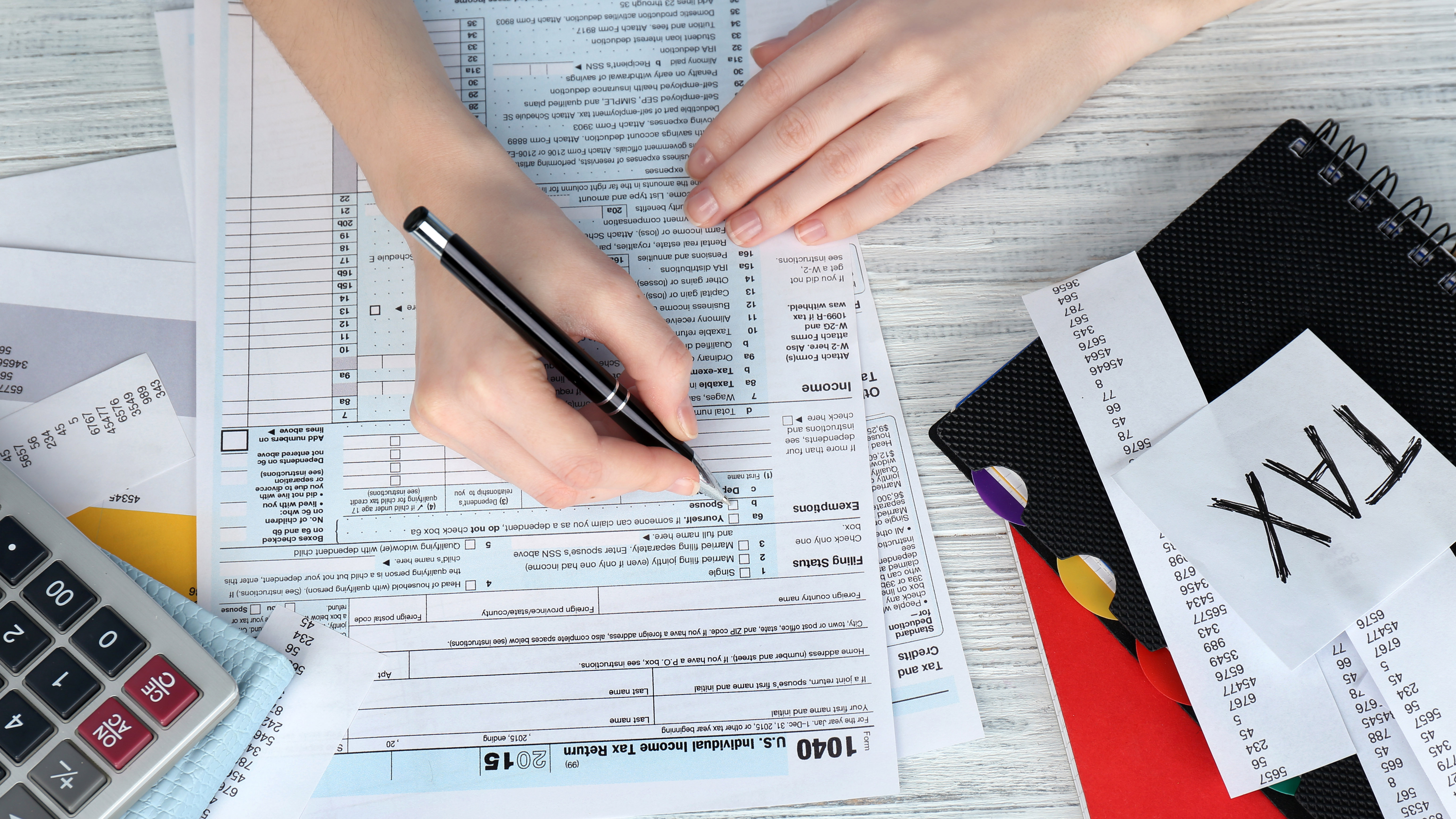The ultimate guide for US taxpayers to combat identity theft and protect their information
Here are some useful tips to secure your personal information

Sign up for breaking news, reviews, opinion, top tech deals, and more.
You are now subscribed
Your newsletter sign-up was successful
If you're a US taxpayer and must file your tax return annually, you know how stressful it can be. Although many people use accounting software to simplify the process, some prefer to file manually using the traditional paper and receipt method.
Regardless of your preferred method, you must watch out for tax-related identity theft. While identity theft cases are not widespread, the IRS still updates their advice on preventing it. Identity theft can involve criminals stealing your personal information to use credit cards in your name, opening false bank accounts, and stealing tax refunds. As a result, there has been an increase in identity theft protection software.
While these packages can be helpful, you can also do a lot to prevent identity theft.
A big issue
Identity theft is not limited to tax information theft. It can happen across various aspects of your life, including credit, finance, medical services, etc. Identity theft can affect almost every aspect of your life. If you become a victim of identity theft, it can be a very stressful experience and may take some time to rectify the situation.
Not only can criminals cause you a lot of hassle, but there is also a financial aspect to consider, mainly if it affects your tax refund. If they can, your name, date of birth, and Social Security number, held could steal your tax refund.

Looking for the signs
Identity theft is a serious problem that can happen to anyone, even if they take all the necessary precautions. Sometimes, the signs of identity theft are not immediately noticeable, and it can be difficult to detect it on your own. However, there are certain things that could indicate that your identity has been stolen.
For example, if you receive bills for items you did not purchase, or if you are being contacted by debt collectors for accounts that you did not open, these could be signs of identity theft. In more severe cases, you might even be denied loans or other financial assistance. If you suspect that your identity has been stolen, it's crucial that you take action as soon as possible to prevent further damage.
Sign up to the TechRadar Pro newsletter to get all the top news, opinion, features and guidance your business needs to succeed!
Varied victims
The other thing to consider is that potential victims of identity theft don't always have to be adults. In fact, both children and seniors can be particularly susceptible to identity theft. The big problem in the case of a child’s ID being stolen is that it can take several years before the issue is spotted, and can often be highlighted when the child becomes an adult and applies for things like bank accounts and loans.
Meanwhile, seniors can also be vulnerable to identity theft either because of their need to share personal information with more people, such as doctors and care workers, or through accidental slip-ups. Many people struggle with the digital world and some of us aren't always up to speed with the likes of internet security and being able to spot online scams that can appear in social media pages and email messages. Even those of us who are internet savvy can still fall foul of these risks.

Preventative measures
With all that in mind, you might feel that preventing identity theft is a tall order. While it is a big problem, identity theft is being tackled on several fronts. The IRS, for example, has a raft of measures in place to combat it and plenty of after-the-event support options to help if it does happen to you. Adding an identity theft protection package is also a good idea; depending on the package you choose, these tools help you tackle ID theft.
A lot of the fundamental preventative measures can be undertaken by you, though, and many of them are pretty straightforward to implement. You'll want to ensure your Social Security number is well under wraps. For starters, please don't take it out with you or carry it in your purse or wallet. And indeed, don't give it out to anyone unless they can prove a justification.
Additional actions
You should also ensure that you do not share other personal information without good reason. Key personal details such as your date of birth, full name, address, all-important Social Security number, and any bank account numbers should not be shared. In addition, keep close tabs on your mail and take in the post as it arrives each day. Similarly, keep an eye on bank statements and billing cycles. If anything doesn't seem quite right, then contact your financial institution.
It's also perfect practice to pick through your credit card and bank statements, looking out for anything that doesn't look familiar. On top of that, if you've got paperwork that includes things like credit card or bank account offers, don't just throw the work into the trash.
Spend some time disposing of it properly, including using a quality paper shredder where possible, to prevent anyone from going through your trash to piece personal details back together. All these might seem like simple measures, but they can be highly effective just as long as you take the time to implement them.
More from TechRadar Pro
- Check out the best identity theft protection
- The best tax software around today
- Take a look at the best accounting software
Bryan M. Wolfe is a staff writer at TechRadar, iMore, and wherever Future can use him. Though his passion is Apple-based products, he doesn't have a problem using Windows and Android. Bryan's a single father of a 15-year-old daughter and a puppy, Isabelle. Thanks for reading!
